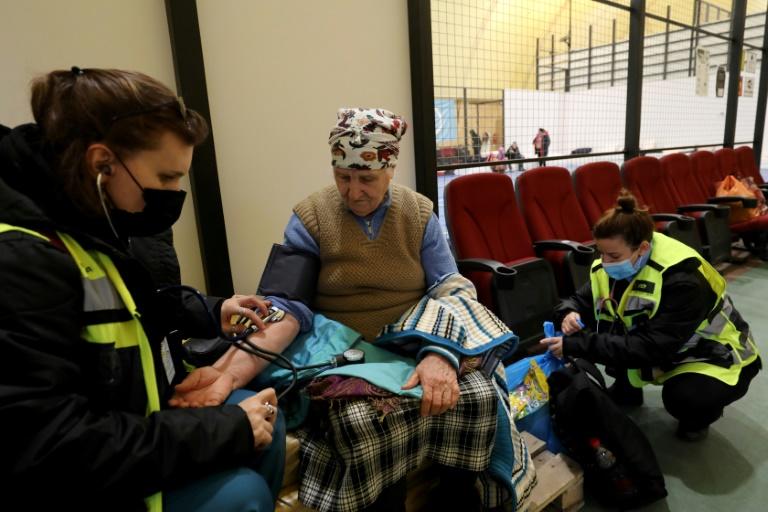
The number of refugees who have fled Ukraine since the Russian invasion on February 24 has topped the “terrible milestone” of three million, the United Nations said Monday.
The UN’s International Organization for Migration said the landmark figure had been surpassed.
“Three million lives uprooted. Three million women, children and vulnerable people separated from their loved ones,” said IOM chief Antonio Vitorino.
UNHCR, the UN refugee agency, said 2,969,600 Ukrainians had fled across their country’s borders, with the IOM adding that 157,000 third-country nationals had also fled.
An IOM spokeswoman said “millions more” people were still stuck inside the country or internally displaced within Ukraine.
UNHCR chief Filippo Grandi said: “Today we have passed another terrible milestone: three million refugees have fled from Ukraine. The war has to stop. Now.”
UNICEF, the UN children’s agency, said around half of those who had fled were children.
“It means stress and sadness” for children, spokesman James Elder told reporters in Geneva, leaving their fathers behind to fight and witnessing their mothers eventually cracking after days of stoicism trying to escape to safety.
The UNHCR initially estimated that up to four million people could leave, but last week admitted that figure might well be revised upwards.
Before the conflict, Ukraine had a population of 37 million in the regions under government control, excluding Russia-annexed Crimea and the pro-Russian separatist regions in the east.
Here is a breakdown of where Ukrainian refugees headed to, according to the UNHCR:
– Poland –
Six in 10 Ukrainian refugees crossed the Polish border, with some 1,791,111 having done so.
Tens of thousands of people are also entering Ukraine from Poland — mostly those returning to fight but also others seeking to care for elderly relatives or returning to bring their families out to Poland.
Before the crisis, around 1.5 million Ukrainians lived in Poland, the vast majority working in the EU nation.
The data of arrivals into Ukraine’s neighbouring countries which are in Europe’s Schengen open-borders zone — Poland, Hungary and Slovakia — only represent border crossings into that country.
“We estimate that a large number of people have moved onwards to other countries,” UNHCR said.
– Romania –
The UNHCR said 453,432 people had made their way into neighbouring Romania, including people who had crossed over from Moldova to reach the EU member state.
The UNHCR figures per neighbouring country are 233,266 higher than their overall total — a difference which the agency says reflects the number of people who crossed between Moldova and Romania.
The vast majority are thought to have made their way onto other countries further into Europe.
– Moldova –
Many Ukrainians fleeing the fighting transit through Moldova, a small nation of 2.6 million people and one of the poorest in Europe, en route westwards to Romania and other countries beyond.
The UNHCR said 337,215 Ukrainians had crossed into the non-EU state. It is the closest border to the major port city of Odessa.
– Hungary –
A total of 263,888 Ukrainian refugees crossed into Hungary.
Hungary has five border posts with Ukraine and several frontier towns, including Zahony, where local authorities have turned public buildings into emergency centres for refugees.
– Slovakia –
Some 213,000 refugees made it across Ukraine’s shortest border into Slovakia.
– Russia –
Some 142,994 refugees have sought shelter in Russia.
In addition, UNHCR said 96,000 people had crossed into Russia from the pro-Russian Donetsk and Lugansk regions of eastern Ukraine between February 18 and 23.
– Belarus –
Some 1,226 refugees have made it to Belarus, the UNHCR says.
rjm/lv/lc




